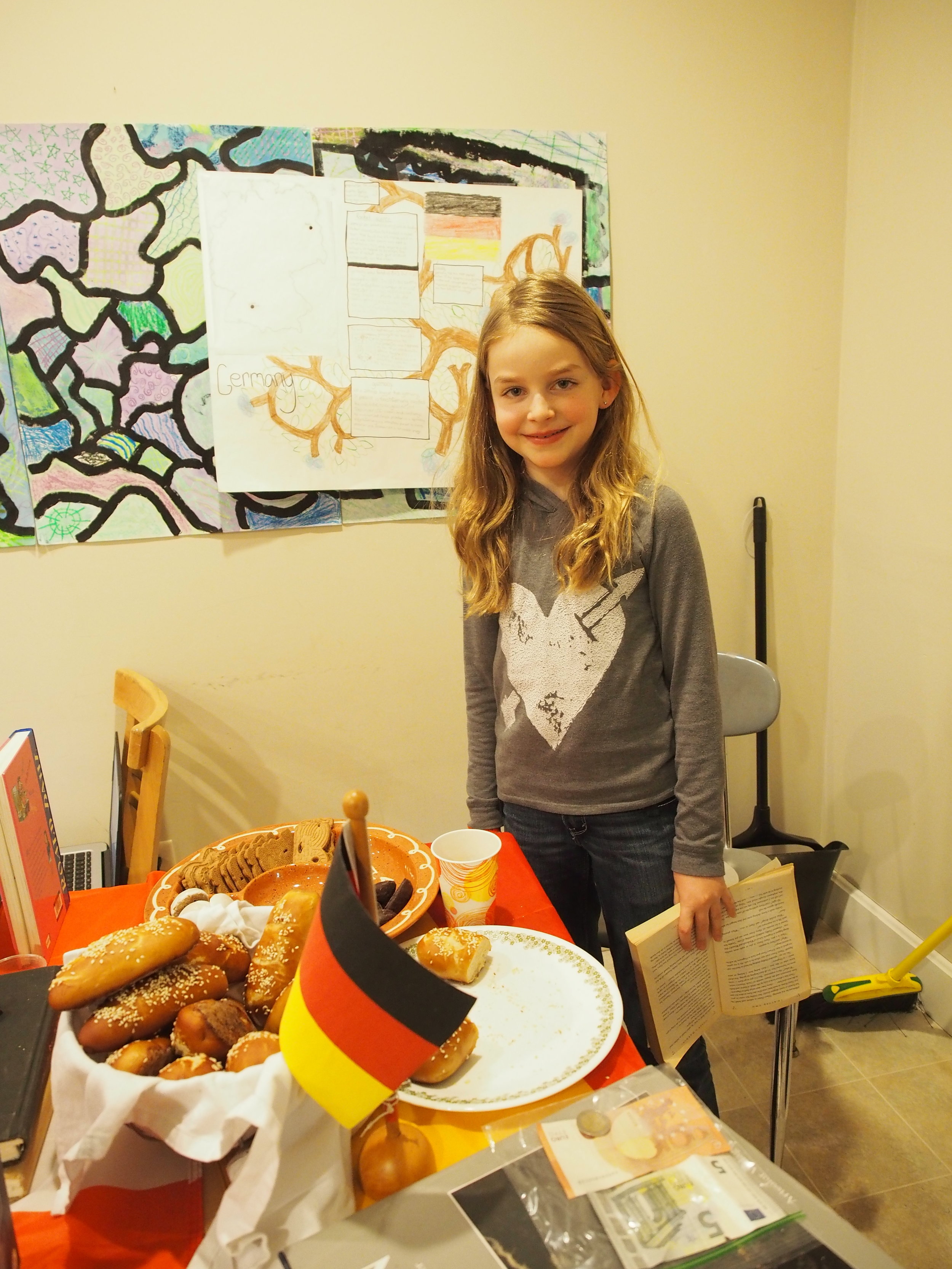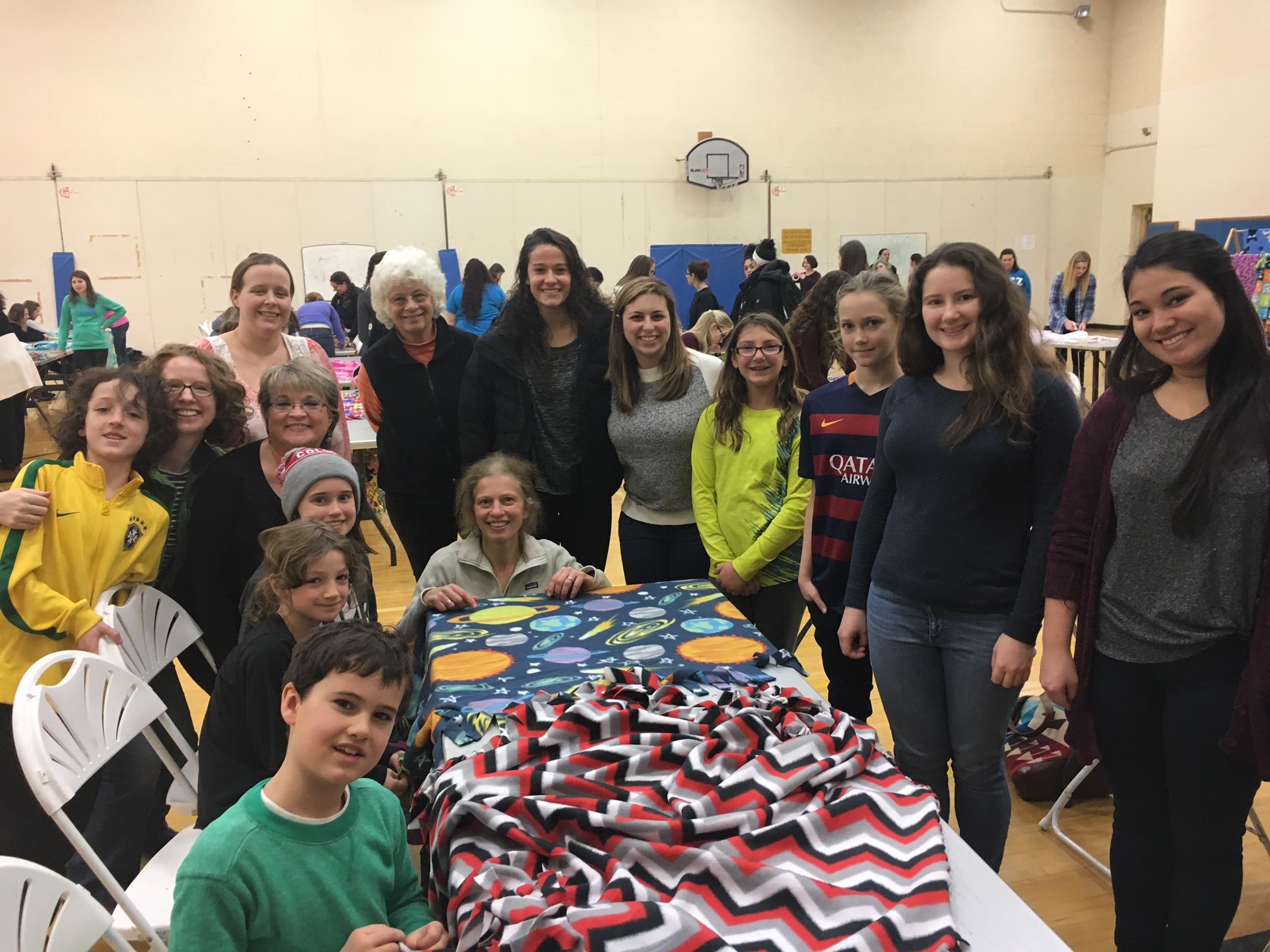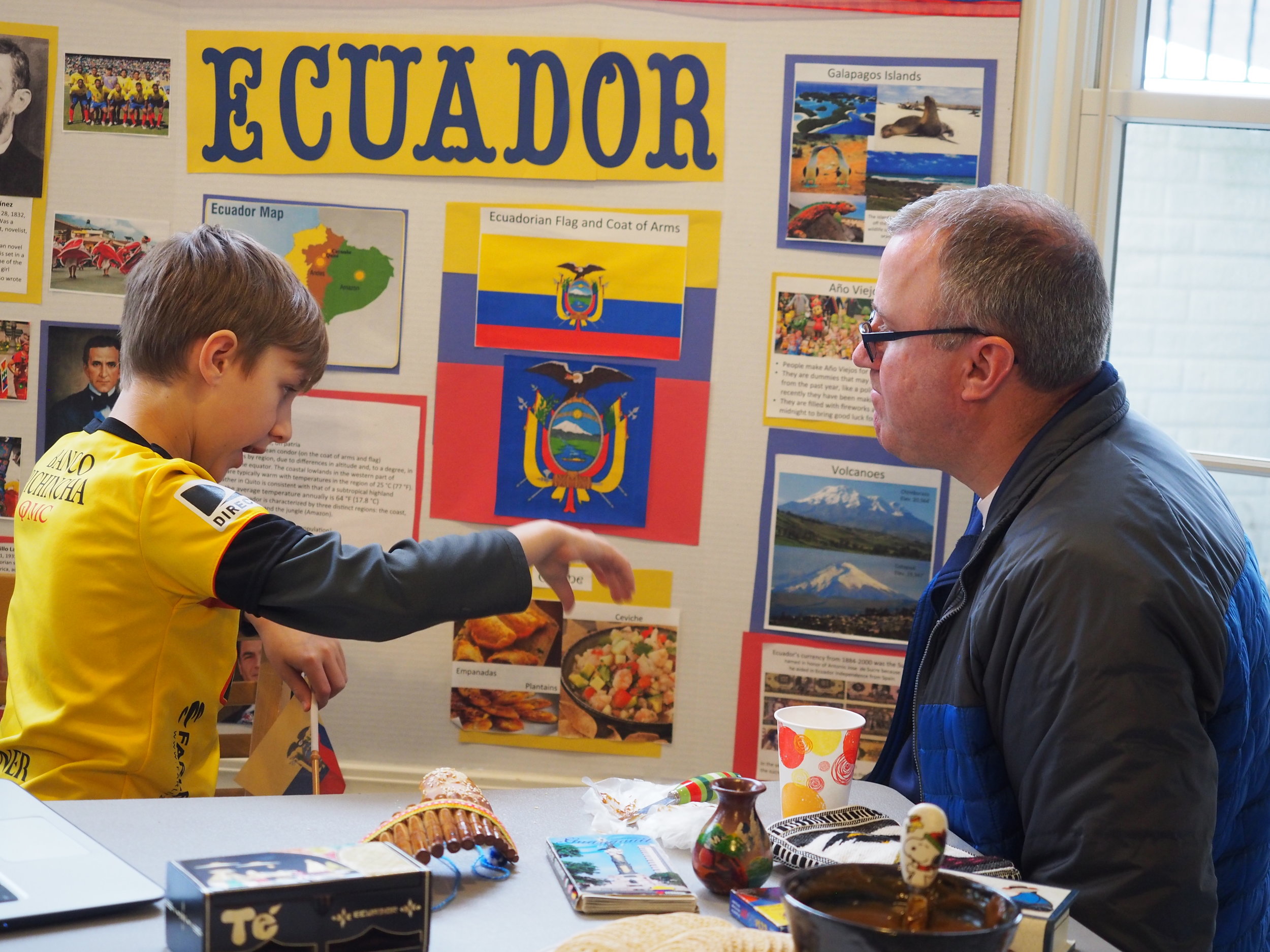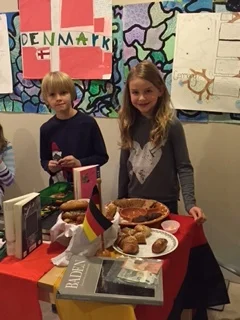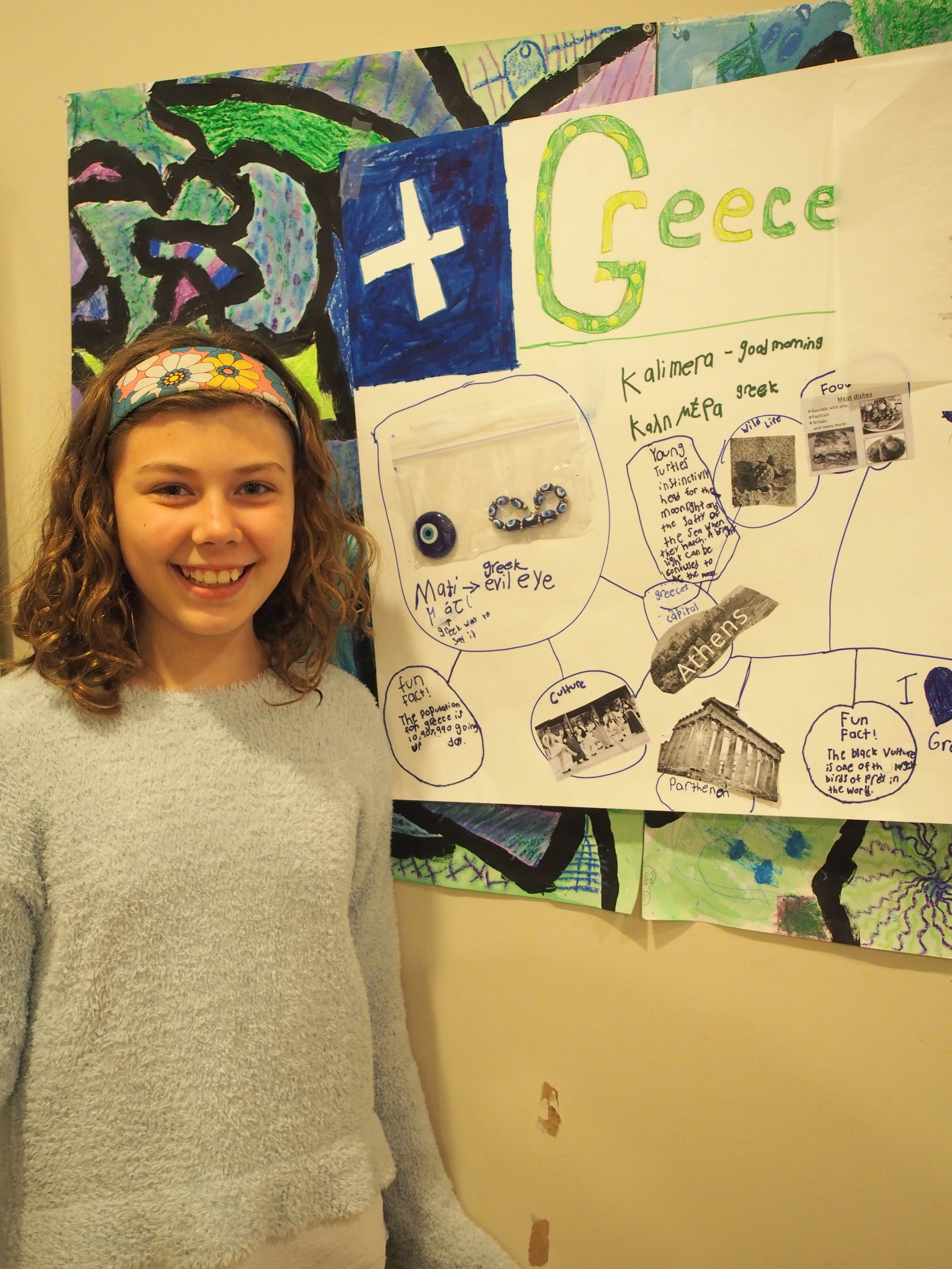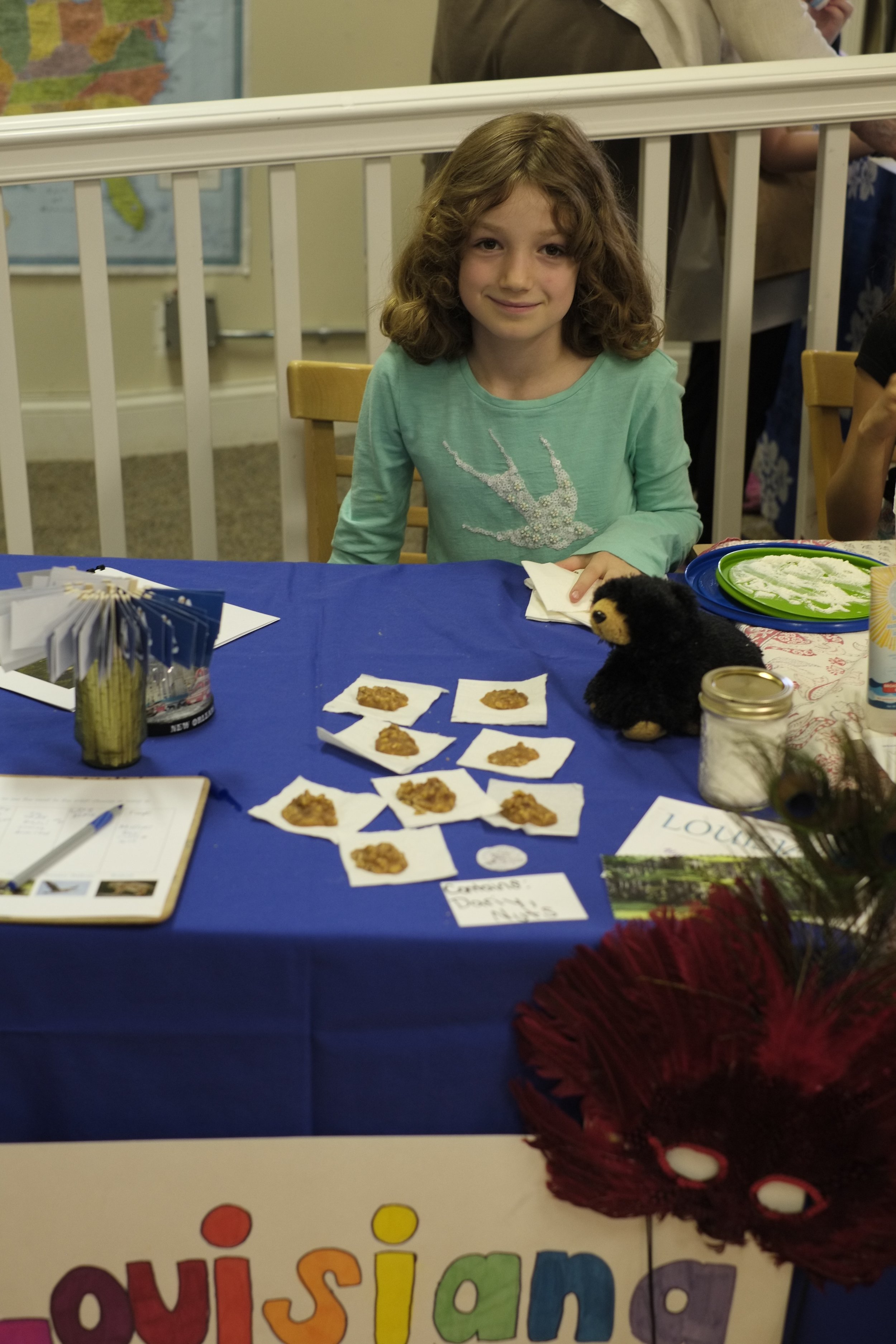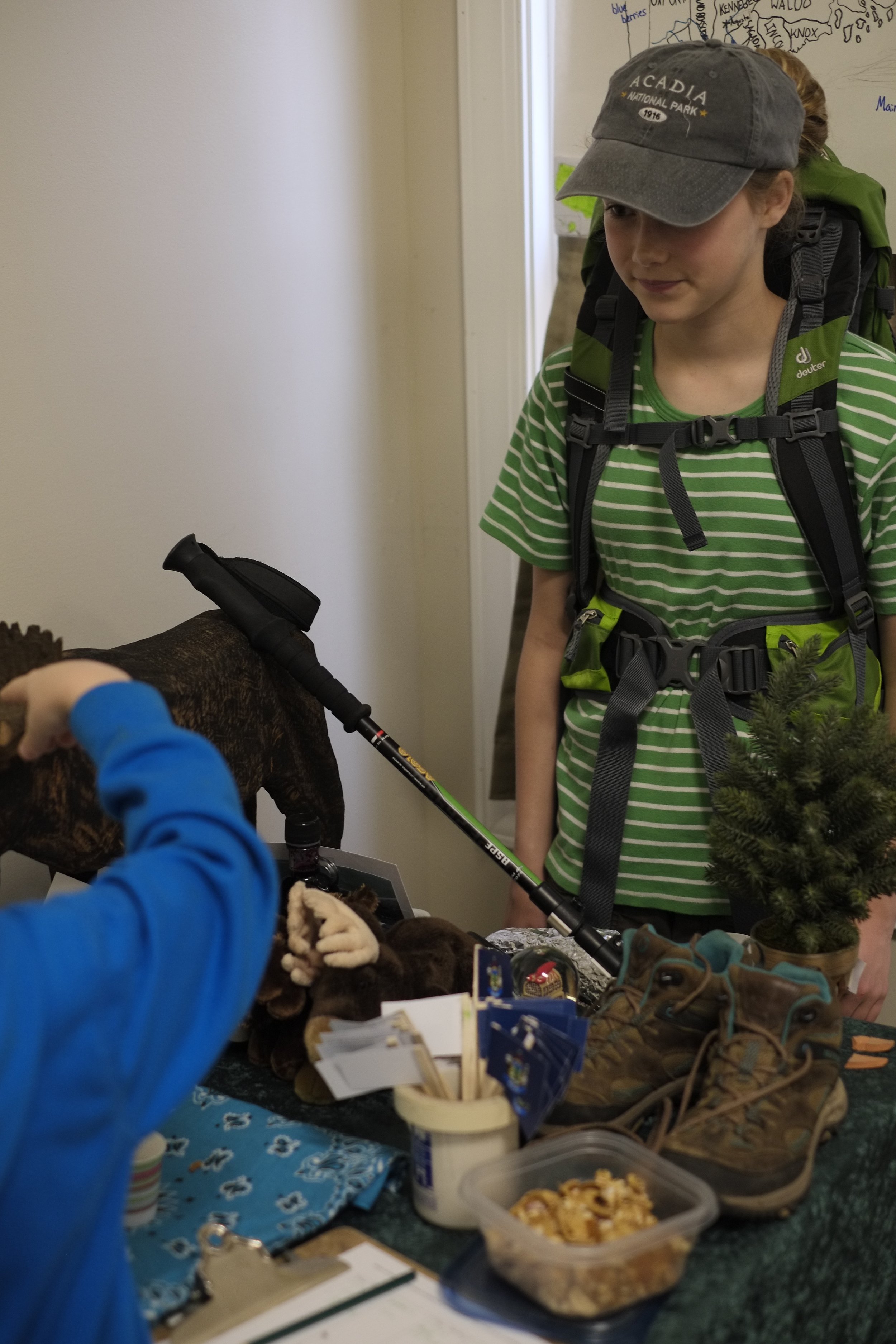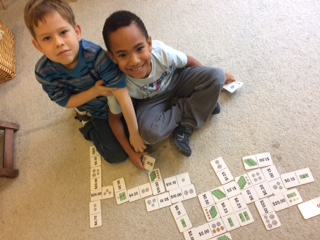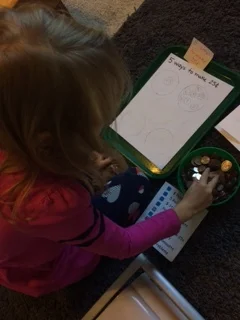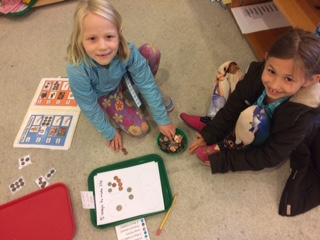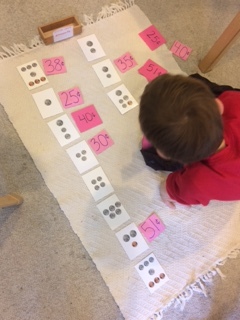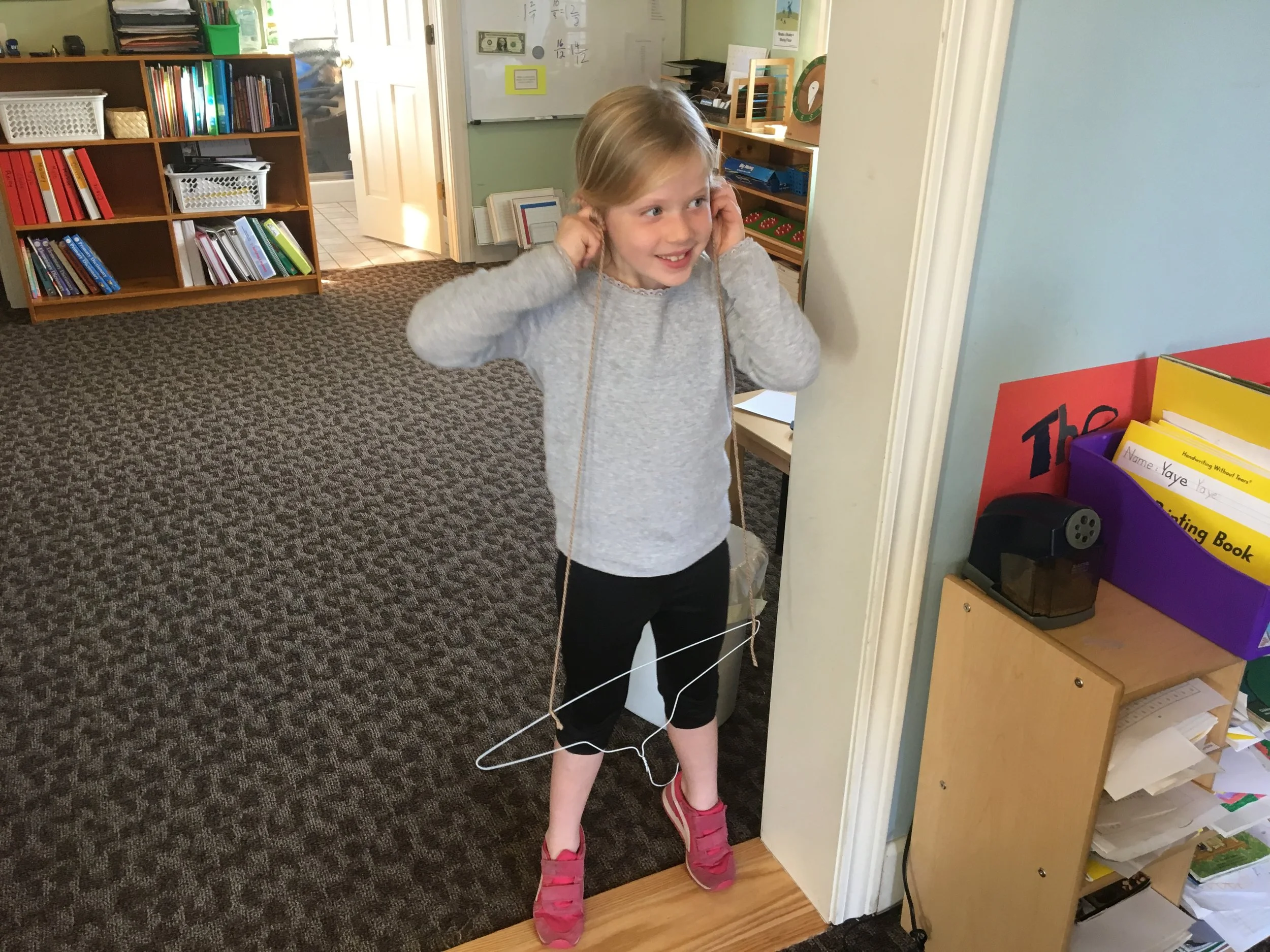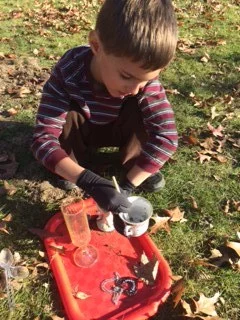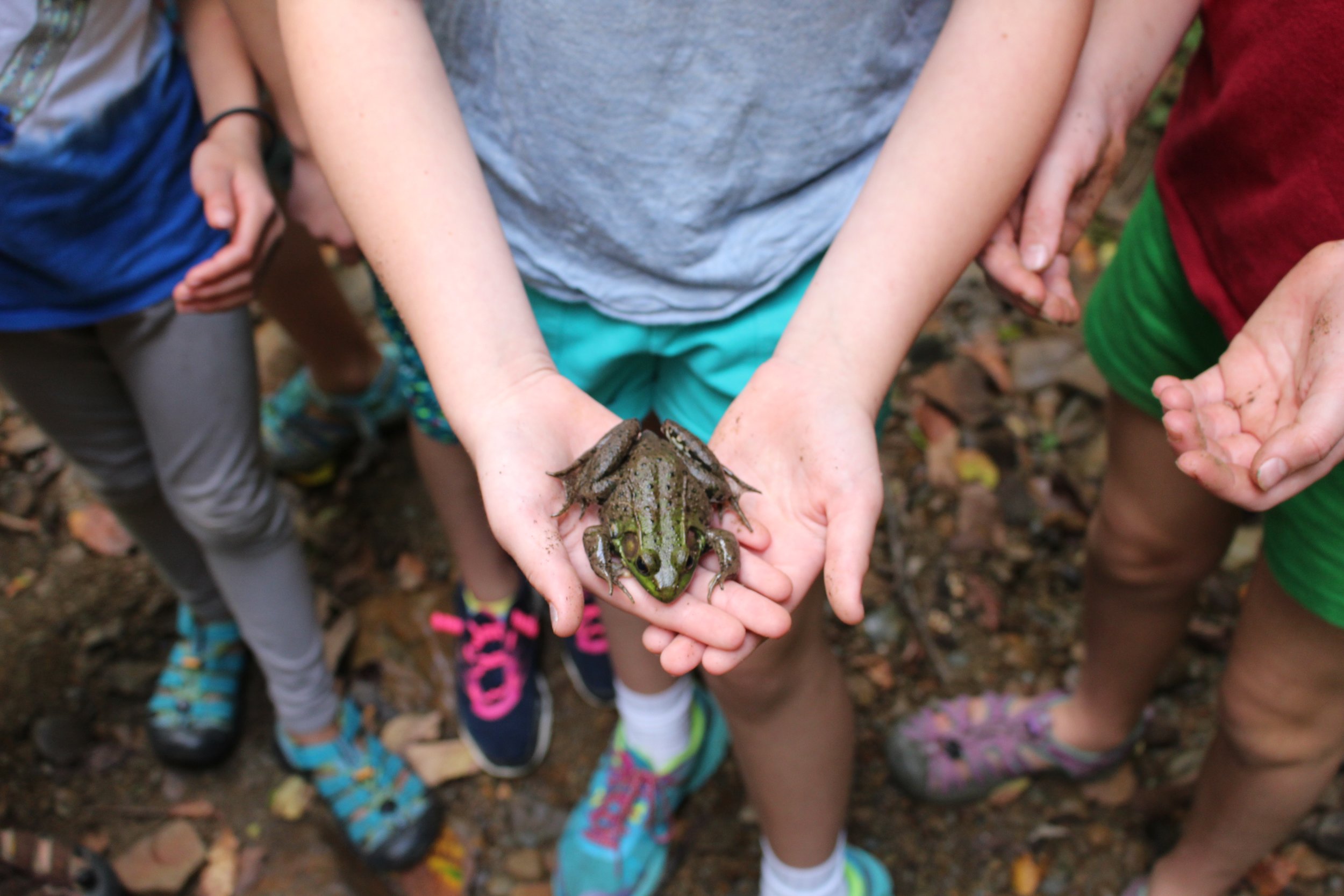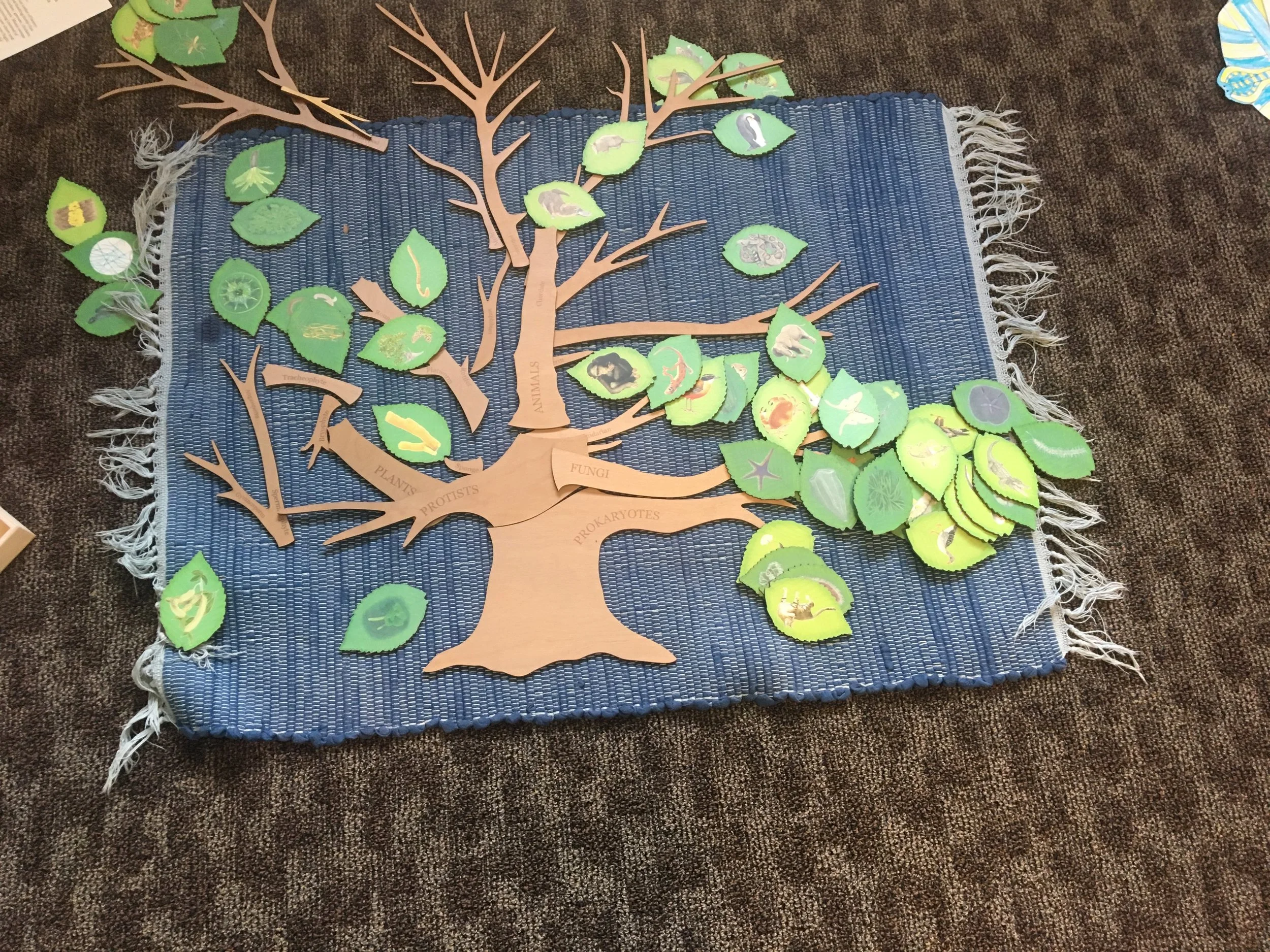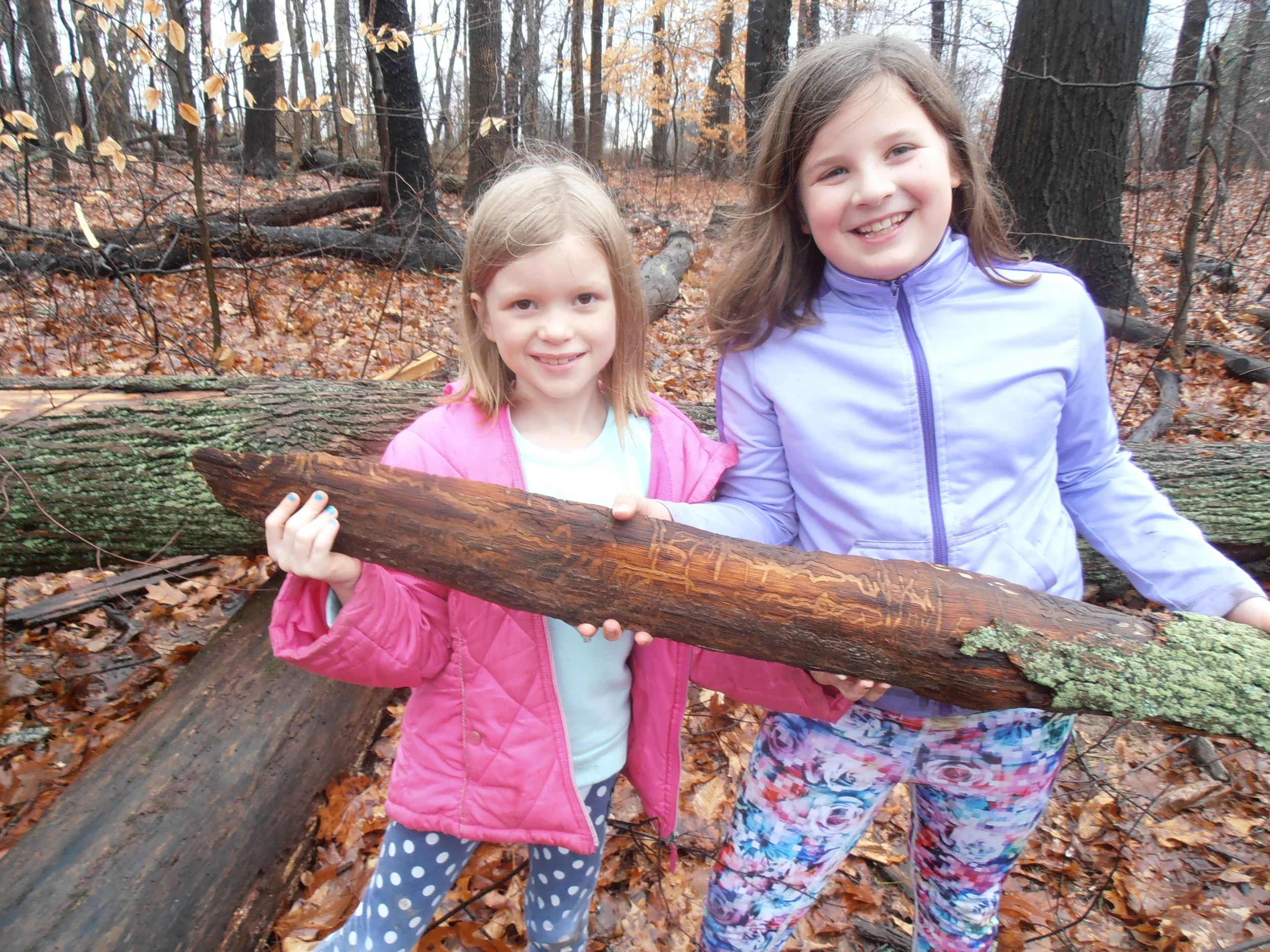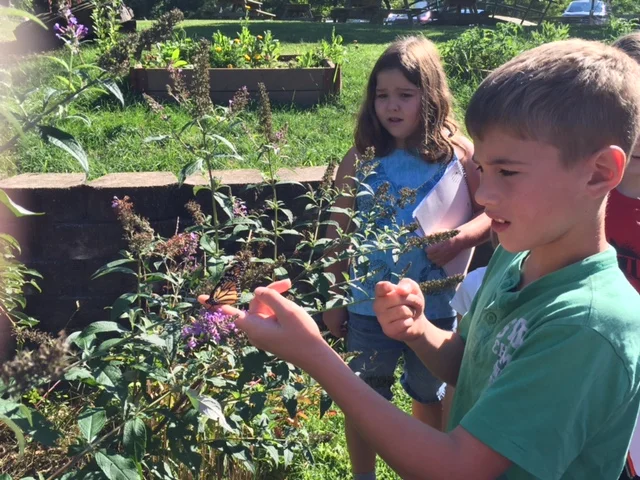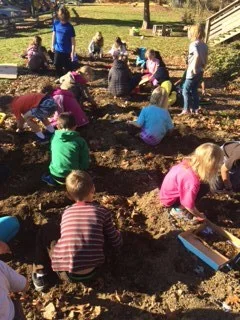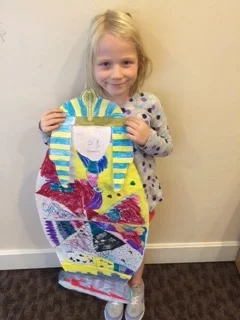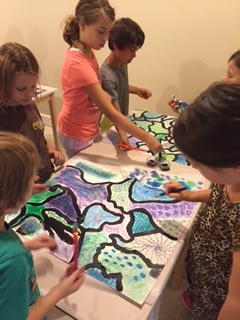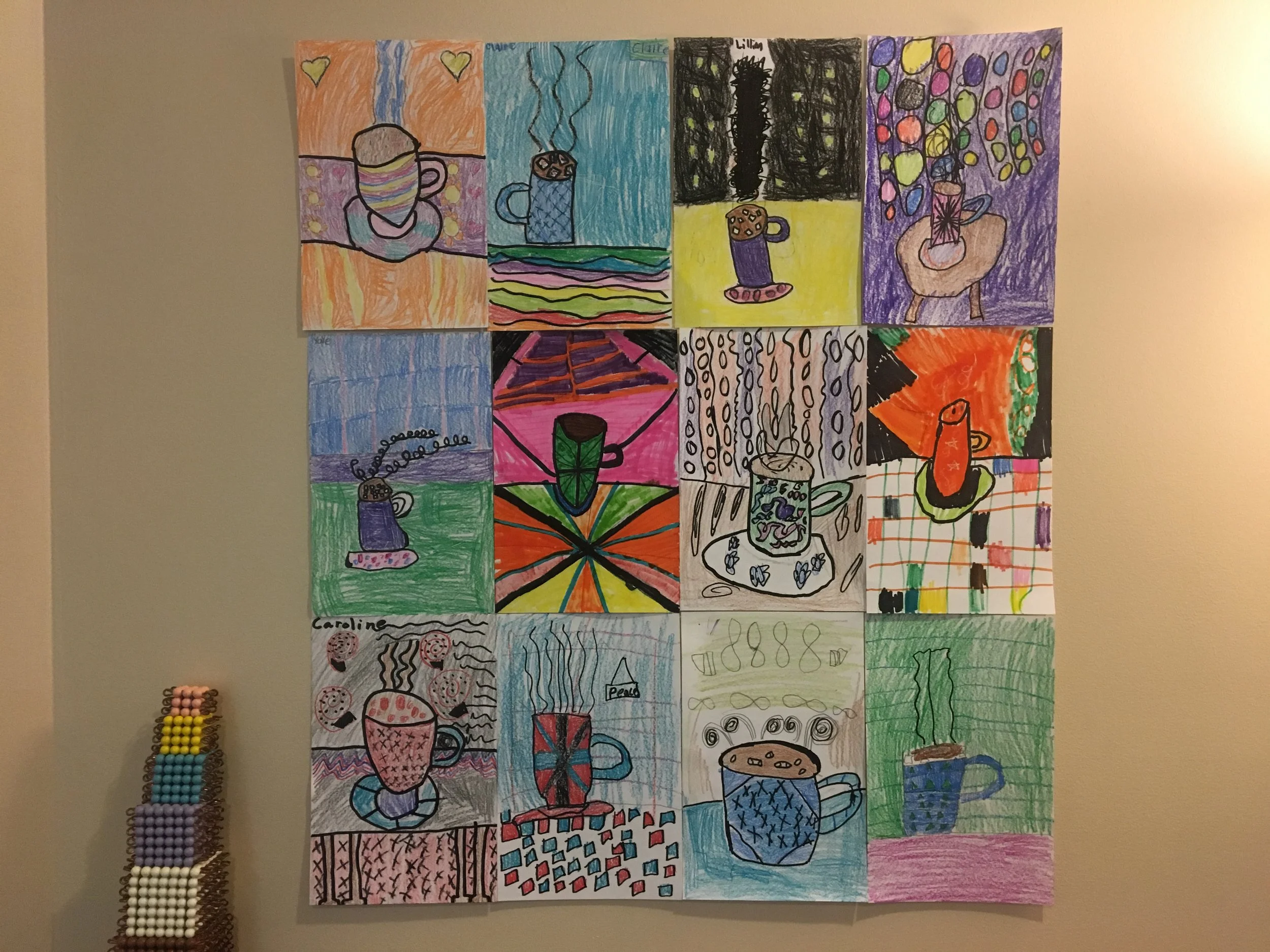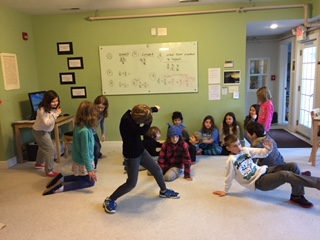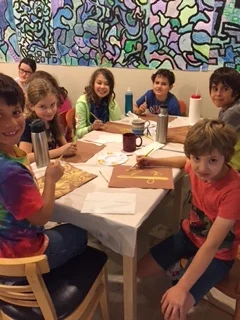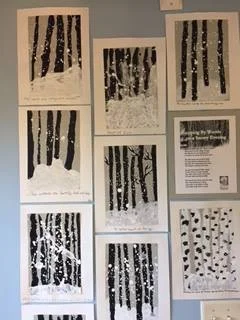Montessori does not end in the primary years. The elementary program builds on the academic skills and work ethic established in Children's House.
The organizing principle of Montessori elementary education is to provide a framework in which all the details a child learns can be related and therefore remembered. While solidifying basic knowledge of reading, writing and mathematics, students research and explore subjects both inside and outside the classroom walls.
Montessori education teaches students to think for themselves, not just to memorize facts, feed them back on a test, and forget them. Students literally learn how to learn and become fully engaged in the learning process. Rather than present students with all the "right answers", Montessori teachers ask the "right questions" and challenge students to find new solutions or discover the answers on their own.
The Montessori School of Wooster aligns its elementary curriculum with the Ohio Department of Education's academic content standards. Our curriculum includes the traditional basics such as the memorization of math facts, spelling, vocabulary, grammar, sentence analysis, creative and expository writing, and library research skills. Our students study mathematics, geometry, science and technology, mythology and great literature, history, world geography, civics, economics, anthropology, and the basic organization of human societies. Below are a few highlights of the areas covered.
Language
The language curriculum is designed to enhance the students' skills in reading, comprehension, writing and speaking; and to provide connections with history, literature, science, math and geography. Creative writing allows the students to express thoughts before spelling and grammar are mastered. As the student's skills progress, sentence structure becomes more complex, spelling improves, and story-writing skills develop. Students write book reports, poetry and journals, and then learn to analyze sentences, and refine research skills. Students study word families, create spelling lists, study word origins and meanings, and test their spelling skills. Print and cursive handwriting skills are reinforced through practice, journaling and class work.
Mathematics
The Montessori math materials allow the student to develop an in-depth understanding of math concepts, while also memorizing math facts. Students work at their own pace while receiving individual and small group lessons. Student acquire complete understanding of the four basic processes (addition, subtraction, multiplication, division). They also work with measurement, word problems, factoring, estimation, probability, fractions, and decimals. The students work with analog time materials and gain good understanding of money.
Science
The scope of the Montessori science curriculum includes a sound introduction to botany, zoology, chemistry, physics, geology and astronomy. The Montessori approach to science cultivates children's fascination with the universe and helps them develop a lifelong interest in observing nature and discovering more about the world in which we live. Science lessons are given in small group format and involve hands-on experiments whenever possible.
Spanish
Students study the Spanish language from a dedicated Spanish teacher weekly in small groups so that every student can participate in an oral and hands-on way. Children are introduced to vocabulary, phrases and grammar along with Spanish culture and holidays.
Art
Art concepts, creative expression, various media and artists are explored. Art is also integrated into the curriculum through geometric drawings, map skills, botany and zoology nomenclature, and studies of architecture.
Music
The Montessori School of Wooster employs a dedicated music teacher and has a music room on our elementary floor. Musical instruction includes studies in rhythm, music history, notation and appreciation.
Peace Curriculum
Maria Montessori felt that it was not enough simply to educate children in the area of academics but to educate them in the creation of a more harmonious way of life. The "Peace Curriculum" teaches subjects including: Taking turns, understanding your own reflex reactions to problem situations, hearing and understanding another's point of view, communicating clearly, creating win-win solutions, and acting as a mediator for others with conflicting needs.
Physical Education
Students participate in once weekly Physical Education classes in activities such as kickball, basketball, soccer, co-operative games, and a variety of other physical activities.
Daily Goals
Each elementary child receives an individualized work plan. This is done to aid the child in making good choices, to encourage planning and to provide for accountability. The teachers keep extensive records of their own.

